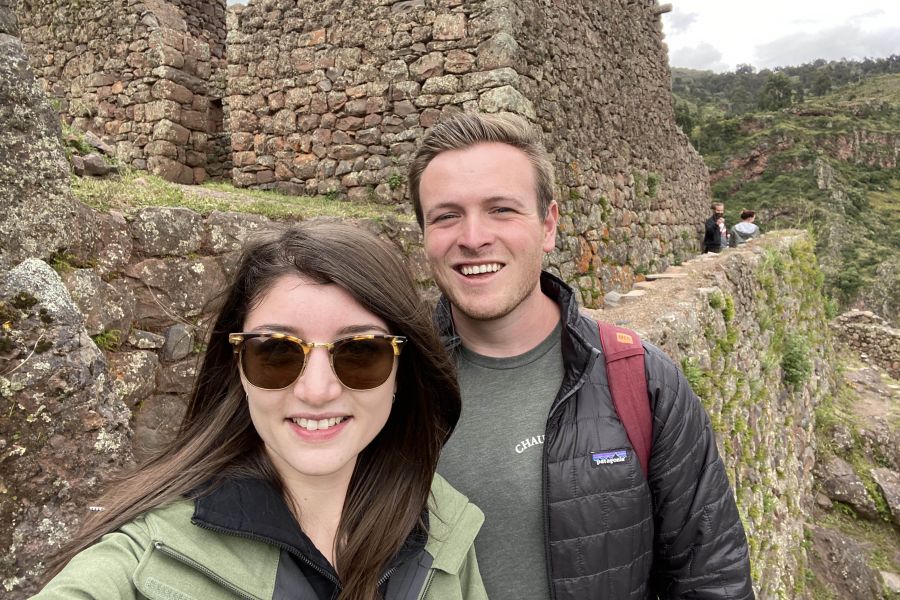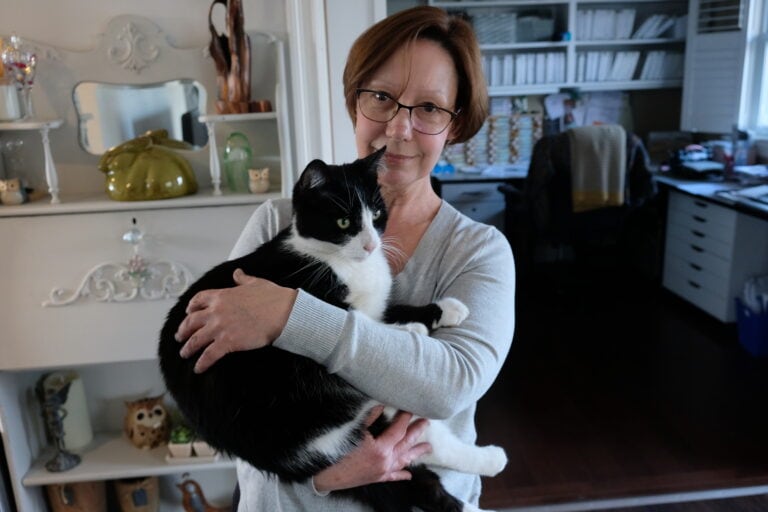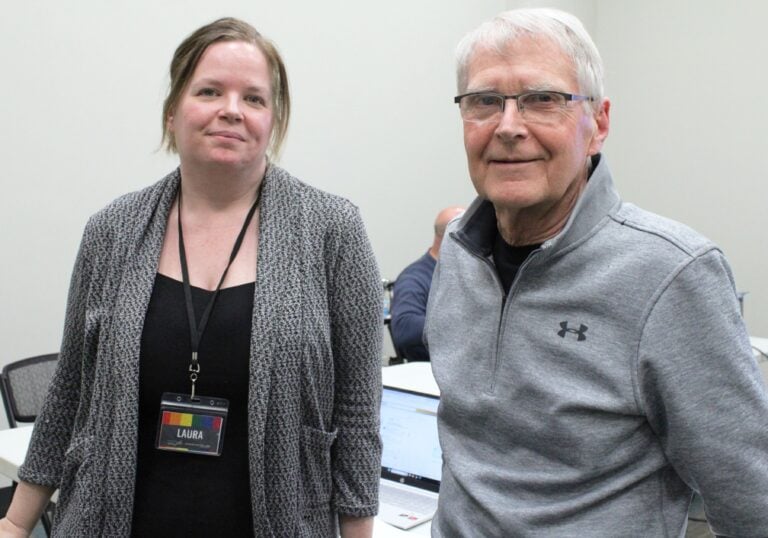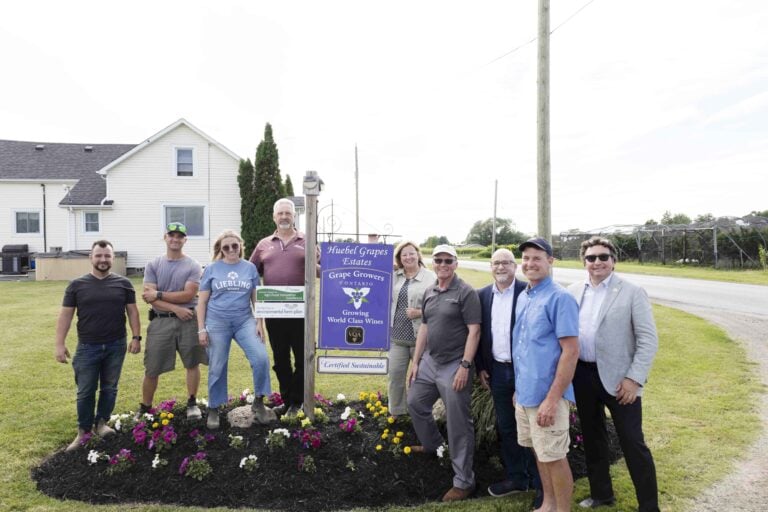Two Niagara-on-the-Lake residents are stuck in quarantine in Cusco, Peru, as a result of the changing situation around the globe due to COVID-19.
Scott Robinson and Chelsea Widdicombe must stay quarantined until at least April 1 under orders from the Peruvian government, and are doing everything they can from isolation to advocate for the Canadian government to help get them home.
Robinson said the number one thing for all Canadians stuck in Peru is to raise some awareness to put pressure on the government to bring them home.
“The Trudeau government has made announcements that they’re working with airlines to try and retrieve citizens back to Canada.
“That’s come from (Prime Minister Justin) Trudeau himself in his last two speeches, as well as tweets from the minister of foreign affairs and emails we’ve received from the Canadian embassy in Peru,” Robinson said.
“So they are working towards that or at least exploring the option of that. But what we would really like to do to be relieved of the uncertainty in this situation is for the Canadian government to send planes to retrieve Canadian citizens in Peru.”
In an email to The Lake Report on Wednesday morning, Robinson said:
“The first Canadian reparation flight left from Lima yesterday afternoon with 402 passengers. Two more flights of the same size are planned for Thursday and Friday. These flights are only for Canadian citizens in Lima, the capital city of Peru. Elderly people, unaccompanied minors and those with medical needs are being prioritized. A ticket on these flights costs $1,400.”
“This is great news for the 1,200 Canadians who will get to go home this week. Our data shows that there are about 2,600 Canadians in Peru who have requested to come home. The data also shows that about 40 per cent of Canadians are in the city of Cusco (where we are). That would be between 800 and 1,100 Canadians in Cusco (which is) is a 23-hour bus ride from Lima, and no one can travel that route without government authorization.”
“We are waiting to see if the government will announce flights from Cusco. It is looking increasingly likely, as communication from the embassy and the minister of foreign affairs have both concretely confirmed that they are working on arranging travel for citizens in Cusco. The timeline for that is unknown.”
“We grow increasingly concerned that as time passes, the Canadians abroad will become less of a priority. As the situation develops domestically, the focus will shift to the health care system and help for local economies. We hope that Global Affairs can continue to prioritize the reparation if citizens abroad during this unprecedented time.”
The two longtime friends, both 23, met up in Peru on March 12, they told The Lake Report in a phone interview. At first things were normal and they were busy seeing the sights, but everything changed quickly.
“March 16 is when everything really shifted for us,” Robinson said.
“We were in a town called Aguas Calientes, which is the travellers’ town at the base of Machu Picchu, and we had tickets to go see Machu Picchu at about 5:30 in the morning. And at 5:30 in the morning when we were there an official from the ministry of culture came out and said ‘Machu Picchu closed, town closed,’ and everything sort of spiralled from there.”
Robinson said the president of Peru announced that at midnight the same night the borders would close, all flights would be cancelled and there would be an enforced quarantine.
“I came on Feb. 29 to Peru and landed in Lima. And then Chelsea joined me in Cusco on March 12. So we had three or four days of fairly average normal travel through Peru, and then as the situation became increasingly more severe, more worrying. We made travel arrangements to try and get home earlier,” he said.
“We were hopeful, and we did our best to try and get out,” Robinson said.
Their flights had been scheduled for March 22 but were moved to the 18th, so the two thought they might be able to get to the international airport in Lima and make it out before the border was sealed. But those plans didn’t work out.
“Agua Calientes is three or four hours of travel from the nearest airport on a good day, but with every single traveller and worker and resident of the town trying to get out, it took us a lot longer.”
Robinson said they’re now staying in an Airbnb complex in Cusco with about 10 or 12 other travellers.
“They were able to extend our accommodation when we got back to Cusco, when it became apparent we weren’t going to be able to get to Lima or back to Canada,” he said.
“Everyone in the complex is in the same scenario as us. There’s travellers from Canada, Germany, the USA, that all basically have the same story as us” and are hoping their governments will help get the home.
The official quarantine is for 15 days from March 16, he said. If nothing changes, they will be stuck in Peru until April 1.
“We’re hopeful that the Canadian government will send planes to pick up Canadian travellers before that time,” Robinson said.
One big worry is that, though the quarantine is only 15 days, it could be extended.
“There’s no guarantee that after the 15 days that we’ll be able to go home. Perhaps they’ll extend the quarantine, perhaps things will go on longer, so we’re hopeful and working hard to get the government to send planes to get us home.”
Widdicombe said some of the measures they’ve taken include sending emails to multiple MPs, the Peruvian government, the Canadian government and the Canadian embassy in Peru.
“We have a very long list of contacts that we’ve tried to get in touch with,” she said.
“Family members at home are trying to go to the MPs office to talk to them, they’re calling them. Friends and family are doing things, we’re trying to do all that we can here. We’re in multiple Facebook groups and chat groups where everyone is updating each other on the information,” she said.
“But it’s really overall up to the government. We just have to keep spreading the word about it and hoping they send planes over.”
Robinson said so far he’s heard news that Mexico, the United States and Ireland have all been successful in co-ordinating planes to get travellers home.
As well, Prime Minister Justin Trudeau announced Friday that planes would be sent Morocco to bring people back to Canada.
“So we’re hopeful that Peru is next on that list,” Robinson said. “There’s a lot of travel registries and different things — we’re trying to make sure that we’re on every list possible, so if a plane is sent that we’re on that list.”
The situation is “developing every day,” he said.
“The current state of affairs is that there’s an enforced quarantine, where you’re not allowed to leave your house or accommodation except for medical emergencies or for food. And there’s also a curfew where no one is allowed to leave their accommodation between 8 p.m. and 5 a.m.”
He said there are police on the streets and in some cities soldiers are on the streets enforcing the quarantine rules.
“We’ve left the house once,” Robsinson said. “We went to the local market to stock up on some food and it was a fairly painless process. But as time goes on on we’re unsure how that will develop. We’re hearing new things every day about it getting stricter and stricter.”
He said the worst part is the “uncertainty of it all.”
“I was on what was supposed to be a 10-month trip. Chelsea was here to visit in Peru for about nine days. So while both of our lives have been interrupted, her life has definitely been interrupted in a much more severe way … and now there’s just sort of an air of uncertainty of what will happen next.”
He said both of them would rather be home.
“We would much rather be in the Canadian health care and legal system, than the Peruvian health care system.”
Widdicombe said people are coming around to check if people have the virus, and if they do, they have to stay put for another four weeks.
They said they aren’t sure if it’s official clinical testing or not, and they haven’t been to their complex yet.
“We just heard that this morning. That’s a new development, that they’ll be coming around — police officers, or we don’t know exactly who — to accommodations and hostels and things like that,” Robinson said.
“It might be testing, it might be asking people about their symptoms. We’re not totally sure.”
When asked if there are any positives to being stuck in Peru, both Robinson and Widdicombe gave a resounding “no.”
“It’s definitely a scary time,” Robinson said. “Not only are we unsure about the health care system and legal system and safety here, but there’s an uncertainty in terms of access to food, water, electricity — who knows what. So there are a lot of uncertainties that make us pretty worried.”
One good thing is that they are in an Airbnb with other people who are in a similar situation.
“So we can share information. And there are about 600 people in a Facebook group of Canadians that are stuck in Peru that are also sharing information, so it’s been easier than if we were on our own.”
Widdicombe said the markets still have a decent amount of items to buy, but they are nervous there could be a shortage of gas to cook the food.
Robinson said he’s not sure if people are hoarding food and necessities the same way they have been in North America.
“We haven’t been outside except for one scenario since the quarantine began, and we’ve only really seen one street, which is a fairly touristy street. We’re in the tourist area of Cusco, and the tourist area of Peru. So, my feeling is that the situation outside of our door is not necessarily representative of what’s happening in Peru.”
Robinson and Widdicombe have been friends since nursery school.
“We have a long Niagara-on-the-Lake story,” Robinson said. “We went to Kinsmen nursery school together, Parliament Oak together, Laura Secord together … and we were both raised in Niagara-on-the-Lake. And we’ve been friends ever since.”
Their families wait in NOTL
Lake Report contributor Ross Robinson (Wallbangers hockey) is Scott’s father.
He said he’s not overly concerned and feels Scott is prepared to handle the situation.
“He realizes that there’s nothing he can do, he’s being positive and being careful … he’s just gotta wait until the log jams at the borders break,” Ross said.
“There’s no one more qualified personally or travel-wise. Scott will figure it out down there.”
Chelsea’s father, Doug Widdicombe, said he’s been in contact with a long list of government bodies and officials to try to get them home.
“I’ve been in contact with MP, MPPs — multiple — global affairs, foreign affairs, the premier’s office in Ontario, the PM’s office in Ottawa — everybody we could possibly call. The reason for it is the embassy in Peru closed when this happened. So what good is that?”
He said when he calls the embassy he gets rerouted back to Ottawa.
“And then they take days to get back to you because they’re bombarded.”
He said it must be frustrating for Canadians stuck in Peru, that Premier Doug Ford said he would bring Ontario students back from Peru, but neither the provincial nor federal government is planning to bring back people like his daughter.
“I don’t know how he can do it and the feds can’t do it,” he said.
“So that’s why I called his office, to say, ‘Well what about everybody else? Why are you only getting 16, 18, 20 kids out? Get everybody out. Work together on this with the feds and get everybody out.'”











